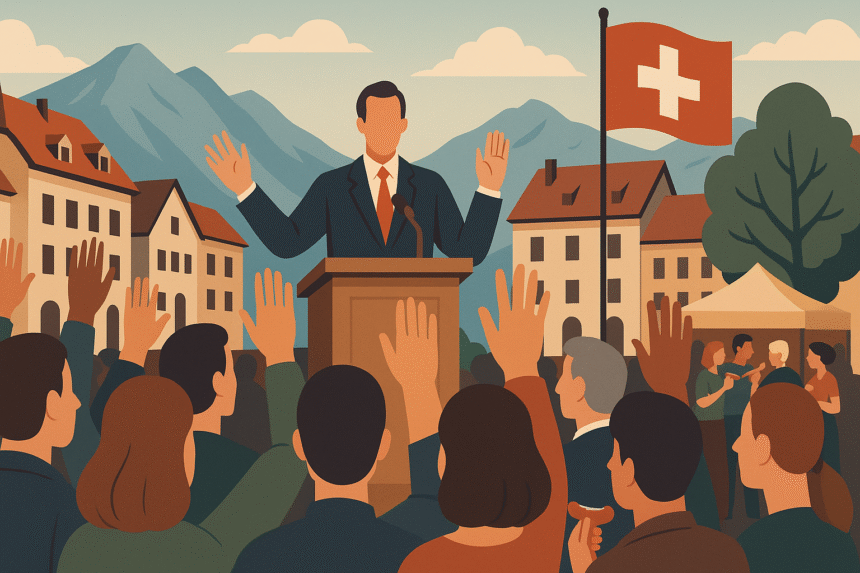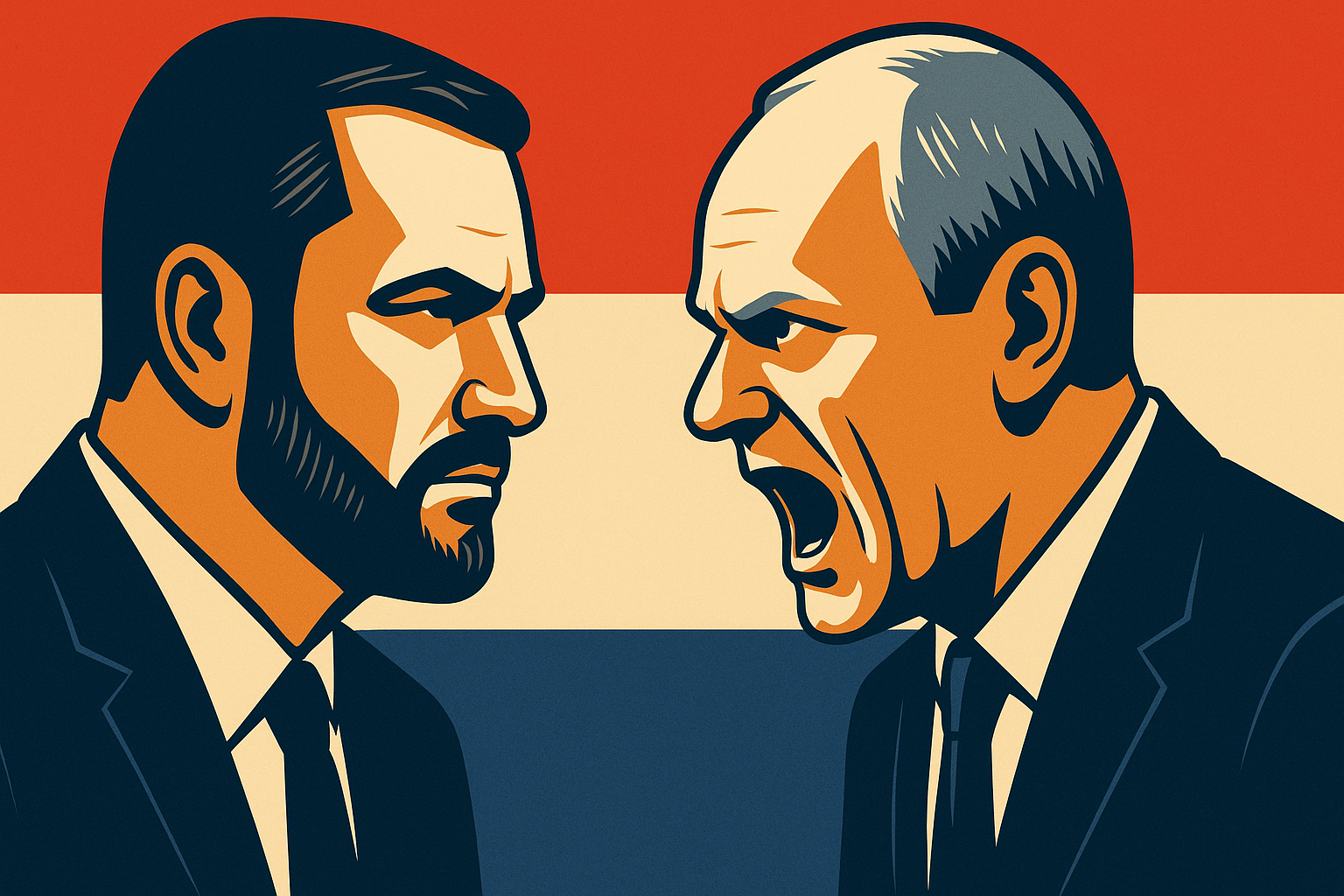In the misty morning air of the Alpine town of Glarus, thousands of residents gather silently in the village square, prepared to take part in a political tradition that stretches back over 700 years. Here, democracy is not practiced through ballot boxes or electronic voting, but rather by the simple raising of hands in public — a ritual known as the Landsgemeinde.
This unique form of direct democracy survives today in only two of Switzerland’s 26 cantons. In Glarus, the tradition remains deeply rooted, reflecting the country’s broader commitment to hands-on civic engagement and highly decentralized governance.
Over the course of five hours, residents vote openly on local laws and funding decisions — ranging from Sunday road closures to school financing and disability support — with no formal ballots, no electronic systems, and no central authority deciding outcomes behind closed doors. Instead, decisions are made in real-time by majority rule, as assessed visually by an official known as the Landammann.
The Landammann, standing on a raised wooden podium, guides the proceedings. He calls on citizens to listen, compromise, and resist political radicalism — warning that even Switzerland is not immune to the populist trends seen across the globe. “It would be naive to think we don’t have the same tendencies in Switzerland that we are seeing outside of the country,” he cautions, before opening the session.
Democracy Without a President
Switzerland’s broader political system mirrors the spirit of the Landsgemeinde. The country has no individual head of state, but instead a seven-member Federal Council that acts collectively as the executive branch. The presidency rotates annually among the council’s members, who serve as figureheads rather than executive rulers.
Swiss citizens play a direct role in shaping national policy. If 50,000 people sign a petition, they can trigger a national referendum to reject or alter a law passed by parliament. With 100,000 signatures, any citizen can propose a new constitutional amendment — such as introducing a federal tax or imposing a population cap — and force a national vote.
Populism and Modern Challenges
While the system is praised for its inclusivity and grassroots engagement, some observers warn that populist initiatives are beginning to gain traction. A recent left-wing proposal for a 13th monthly pension payment passed, despite concerns over cost and lack of a funding mechanism. Meanwhile, the right-wing Swiss People’s Party is campaigning to cap Switzerland’s population at 10 million by 2050, citing pressure on infrastructure and housing.
Historians like Tobias Straumann worry that Swiss voters are beginning to engage with these proposals less critically. Others argue that with Switzerland’s population now at 9 million, the existing thresholds of 50,000 and 100,000 signatures may no longer reflect the democratic weight they once did.
Slow Governance, Broad Inclusion
Switzerland’s highly devolved federal system — which balances three national languages and a variety of local cultures — helps foster consensus and moderation. Though change can be slow, the system ensures that citizens in every canton have a meaningful voice.
One notable example of the Swiss electorate’s pragmatism came in a past vote rejecting extra national holidays due to concerns over economic productivity.
A Community Event — With Tradition and Sausage
At the Landsgemeinde, the hours-long voting session is marked by a quiet intensity. Even when an elderly voter faints and is carried away by medical personnel, the crowd remains focused and orderly until every item is addressed.
Once the final decision is made, the tone shifts. Residents share beers, food, and conversation — celebrating not just the outcomes, but the process itself. In Australia, this civic camaraderie is marked by “democracy sausages” served at polling stations. In Glarus, the equivalent is the Glarner Kalberwurst, a veal sausage that’s part of the post-vote tradition.
Only moments earlier, neighbors may have been divided on policies. Now they stand side by side, united in their participation — a testament to the enduring power of deliberative, direct democracy, Swiss-style.








